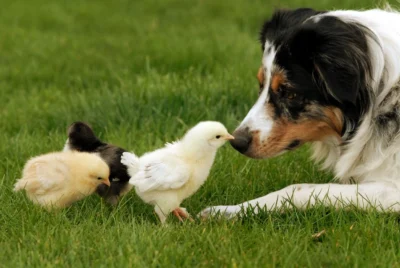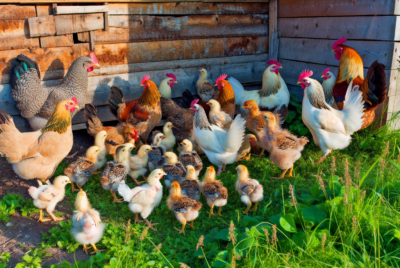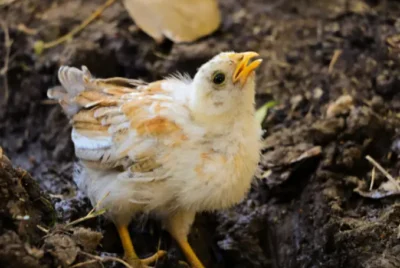The Role of Chickens in Sustainable Pest Management in Gardens
Have you ever tried growing your favorite veggies or flowers only to watch them get attacked by tiny bugs and pests? It’s super frustrating! Many people use chemicals to get rid of these pests, but these can be harmful to our environment and even to us.
Wouldn’t it be great if there was a natural, safe way to keep those pesky bugs away from our plants? Well, guess what? Chickens might be the answer! Not only do they give us yummy eggs, but they also love munching on these garden pests. Let’s find out how chickens can be our garden’s best friend by keeping it bug-free naturally.
How Do Chickens Help in Managing Pests?
Chickens are like nature’s bug vacuum cleaners for gardens. When you let them roam around your garden, they get excited to eat up pesky bugs that can harm plants. Also, chickens eat ticks. These birds have sharp eyes and love hunting for beetles, worms, and other insects. Plus, they have a fun habit: they scratch and dig in the dirt, which can uncover hidden bugs or even baby pesky insects. By doing this, chickens help stop more bugs from growing and causing trouble later on.
And if you let chickens walk around the edges of your garden, they can catch bigger bugs, like grasshoppers. So, by having chickens around, gardens can grow better without using chemicals to keep bugs away. It’s like having friendly little bug guards watching over your garden.
What Types of Garden Pests Are Managed by Chickens?
- Ticks
- Snails
- Weed Seeds
- Japanese Beetles
- Squash Bugs
- Mexican Bean Beetles
- Asparagus Beetles
- Colorado Potato Beetles & Larvae
- Grasshoppers
- Slugs
How to Use Chickens for Natural Pest Control?
Chickens aren’t just providers of fresh eggs; they’re also voracious insect-eaters. Here’s how you can utilize these feathered friends for natural pest control.
Free Ranging Chickens
Allowing chickens to free-range means giving them access to a designated area of your garden or property where they can roam and forage. Their scratching and pecking behavior helps expose insects and pests hiding in the soil, garden mulch and among plants. Be cautious about protecting delicate plants, as chickens’ foraging can also damage vegetation.
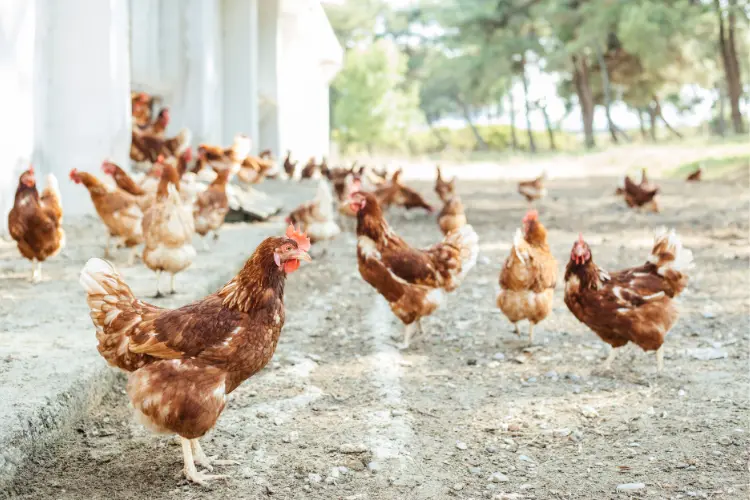
Mobile Chicken Coops
A mobile chicken coop or chicken tractor is a movable enclosure that allows you to place chickens in specific areas for pest control and fertilization. By moving the coop around, you can focus their efforts on areas with higher pest populations or where you plan to plant new crops.
Integrate with Crop Rotation
Chickens can be integrated into your crop rotation plan. After a crop cycle, introduce chickens to the area. They will help break down plant residues, eat any remaining pests, and contribute to soil fertility with their droppings. Chickens can really help in promoting sustainability and encouraging permaculture.- DePhane from Free Plant N Garden Stands
Compost Pile Patrol
Allowing chickens to forage in a compost pile provides dual benefits: their natural scratching behavior helps to aerate the compost, promoting oxygenation and thus facilitating efficient decomposition, while simultaneously reducing pests that might inhabit the pile, as chickens love insects, larvae, and other critters.
This symbiotic relationship not only enhances the compost quality but also provides chickens with a nutritious snack, making it a sustainable and effective method for gardeners seeking natural solutions.
Weed Control
Chickens’ foraging habits extend to weed management. They’ll scratch the soil to find weed seeds and small plants, effectively reducing the weed population. This can save you time and effort spent on manual weeding or using herbicides.
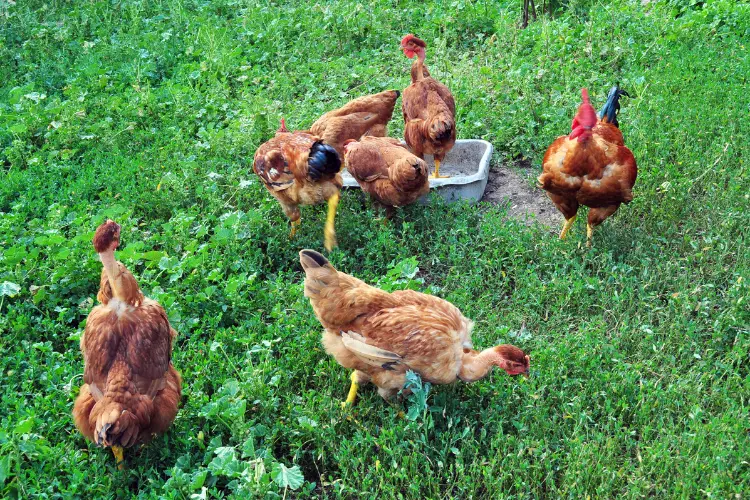
Orchard Clean-Up
Fallen fruits in orchards can attract pests and pathogens. Allowing chickens to clean up these fallen fruits not only prevents pest infestations but also ensures a cleaner orchard environment.
Guarding Against Rodents
Chickens are natural predators of small rodents or other animals. Their presence and hunting behavior can discourage mice and rats from taking up residence in your garden or property, helping to keep rodent populations in check.
Tips for Using Chickens for Pest Control
Time Their Release
Timing the release of chickens into the garden to coincide with peak pest activity—primarily early morning or late afternoon—optimizes their natural pest control abilities. During these periods, many pests emerge to feed or mate, making them more accessible prey for chickens.
By strategically aligning their foraging with these active periods, chickens can more effectively reduce pest populations, helping to naturally maintain a healthier garden environment without the need for chemical interventions.
Protect Valuable Plants
Guarding precious plants with chicken wire or mesh barriers is crucial when integrating chickens into garden spaces, as these birds are naturally inclination to forage and scratch, which can inadvertently harm or uproot desired plants.
By creating these protective enclosures, gardeners ensure that chickens can indulge in their instinctual behaviors and feed on pests, safeguarding the balance between natural pest control and plant preservation.
Ducks as an Addition
Think about raising ducks with your chickens. Ducks are great at eating pests like slugs and snails, which chickens might not catch as easily. So, with ducks around, you get extra help keeping those slimy pests away from your garden.
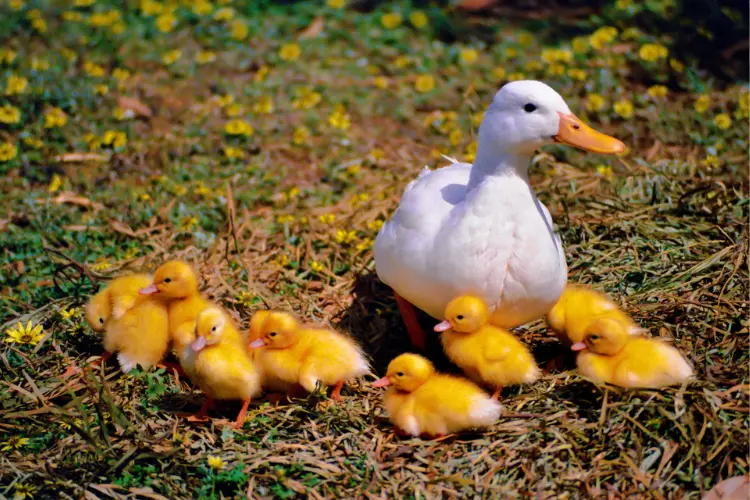
Monitor and Adjust
Watch your chickens when they’re in the garden to see what they do. If they’re eating plants you want to keep or not going after the bugs you want them to eat, you might need to change where you let them roam or the time they spend there.
Other Ways to Use Chickens in the Garden
Biosecurity Agents
Chickens can help control harmful pathogens in the soil. Their foraging can disrupt the life cycle of various soil-borne diseases, reducing their spread and impact.
Waste Managers
Why throw away your kitchen scraps when they can be a feast for your chickens? From veggie peels to stale bread, your leftovers can be a valuable food source for your flock. As they process these scraps, they convert them into manure, taking your waste full circle back to the garden.
Efficient Tillers
One of the inherent behaviors of chickens is scratching the ground searching for food. This constant digging can help turn the soil, making it looser and more aerated. You can also utilize chickens in agroforestry, where scratching, weeding, and pest control would be advantageous. – Zachary Nathan from Gingerhill Farm Retreat
Over time, this natural tilling can help improve soil structure, allowing roots to penetrate more deeply and improving water infiltration.
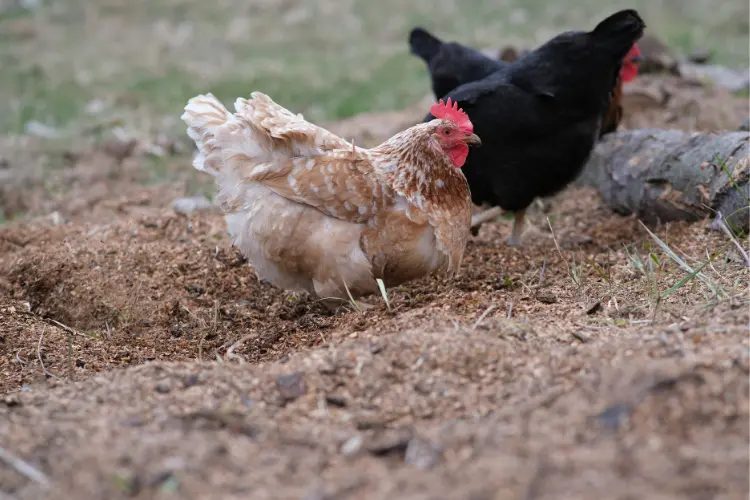
Natural Fertilizers
Chicken manure is a gold mine for gardeners. Rich in nitrogen, phosphorus, and potassium, this organic matter is perfect for enriching the soil. A small flock can produce a significant amount of manure, which can be directly applied to plants or composted for later use.
Read also: How to Use Chicken Manure Properly in the Garden
Disadvantages of Using Chickens in the Garden
While chickens can be valuable assets in the garden, there are also potential disadvantages to consider. Here are some of the drawbacks of integrating chickens into your garden space:
- Chickens aren’t discerning when it comes to foraging. They’ll scratch and peck at anything, leading to uprooted plants or damaged crops. Seedlings and young plants are especially vulnerable to their destructive behavior. So you should know how to create a chicken-friendly garden.
- Chicken manure is rich in nutrients, particularly nitrogen. While this can be beneficial, there’s also a risk of over-fertilization. Excessive nitrogen can burn plants and disrupt the balance of nutrients in the soil.
- While chickens’ scratching can aerate the soil, it can also disrupt its structure, leading to erosion or uneven garden beds.
- Chickens can be messy. Their scratching can displace mulch, disrupt pathways, and create dust baths in inconvenient places, leading to an untidy garden.
- If their manure is not managed well, it can lead to unpleasant odors and attract flies. Regularly clean it and use fly traps to at least minimize flies.
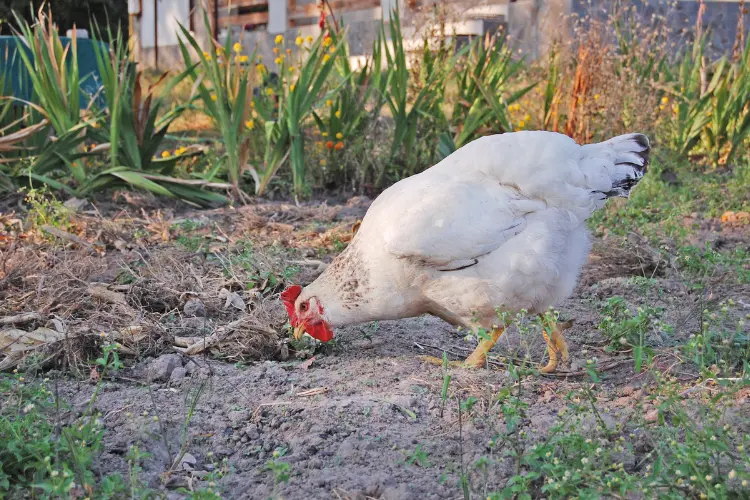
Final Thoughts
Chickens are like nature’s pest controllers for gardens. They eat harmful bugs and insects to keep the garden healthier without chemicals. Plus, their waste helps plants grow better. So, by raising chickens in gardens, we’re using a natural, safe way to keep our plants happy and reduce pests. It’s a win-win for both the garden and the environment!


